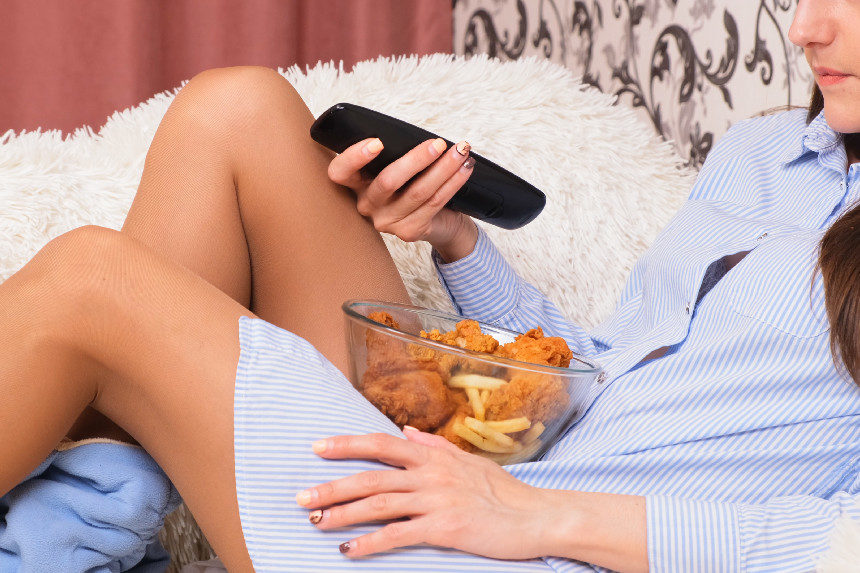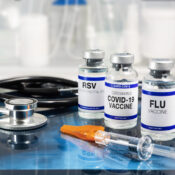“Your Health Checkup” is our online column by Dr. Douglas Zipes, an internationally acclaimed cardiologist, professor, author, inventor, and authority on pacing and electrophysiology. Dr. Zipes is also a contributor to The Saturday Evening Post print magazine. Subscribe to receive thoughtful articles, new fiction, health and wellness advice, and gems from our archive.
Order Dr. Zipes’ books, Bear’s Promise and Damn the Naysayers, A Doctor’s Memoir, and check out his website http://www.dougzipes.com.
COVID-19 has seared its impact into our consciousness, forever transforming our lives. But as we’ve begun to emerge from the darkness, at least in the U.S., we need to take stock of where we are and reassess some behavioral patterns the pandemic has altered. I hope some of what I personally intend to change will resonate and help others return to a degree of pre-COVID normalcy.
Except for news and an occasional movie, I was never much of a TV watcher. The pandemic changed all that as my wife and I, initially housebound, gravitated after dinner to watch television (with its endless choice of movies and shows such as Downton Abbey, The West Wing, Billions, etc.), along with a bag of pretzels (after I’d cooked a full meal), and an occasional pre-bedtime vodka (for me) and a glass of wine (for her), despite wine with dinner.
That behavior was bad on multiple fronts.
First, passive TV watching is intellectually deadening — like hardening of the arteries — and no substitute for reading a good book. And there are so many: Before We Were Yours, Educated, Caste, Empire of Pain to name just a few — or even my own Bear’s Promise. There’s also socializing with friends, exercising, playing a game, etc.
Second, carb snacking is certain to make me gain weight, accompanied by the health perils of obesity. Losing weight has been a holy grail for many. Snacking and inactivity are certain to make such a goal even more elusive. Weight loss drugs have been a notorious failure until recently. Semaglutide may change it all.
A randomized study of almost 2,000 adults with an elevated body mass index found that weekly injections of 2.4 mg of semaglutide (used for type 2 diabetes) plus a lifestyle intervention produced a 15 percent average weight loss compared to 2.4 percent weight loss in the group that received a placebo plus lifestyle intervention. Treated individuals also had a greater improvement in cardiometabolic risk factors and an increase in physical functioning. Nausea and diarrhea, typically transient and mild-to-moderate in severity, were the most common adverse events.
Third, alcohol is a two-edged sword with its J-shaped curve, as I detailed in my last column. Alcohol dependence and alcohol use disorder have increased in many countries around the world during the pandemic, along with an increase in liver disease, abnormal heart rhythms such as atrial fibrillation, emergency hospital admissions, and obesity. Alcohol also can cause high blood pressure which has been on the rise, even before the pandemic. The ills of this silent killer are well known.
Fourth, we need to return to our pre-COVID state of preventive care, including vaccinations (COVID, shingles, flu, etc.), routine screening evaluations such as breast, dental, eye, colon (I had my colonoscopy last week — ugh!), etc. Preventing illness or catching it early is a lot easier and cheaper than treating it later.
Finally, not affecting me directly but impacting many patients, the pandemic has been devastating for many people with substance use disorders who are at higher risk for contracting the virus and having worse outcomes. More people have been dying from overdoses during the pandemic from opioids and stimulants, an unpredictable and highly lethal combination. Most of these deaths are accidental.
So, what should we do? I’m back to a glass (or two!) of red wine with dinner, with no more post dinner snacking and drinking. But I admit I’m hooked to some of the TV programs. Still, finding time to socialize, exercise, read some great books, and do some writing, along with appropriate medical checkups, is helping me return to where I was a year-and-a-half ago. I hope you will begin to find your way back, also.
Featured image: EvMedvedeva / Shutterstock
Become a Saturday Evening Post member and enjoy unlimited access. Subscribe now



